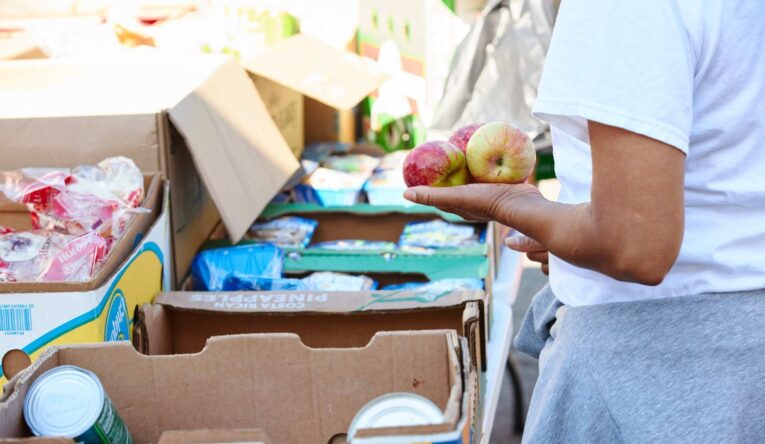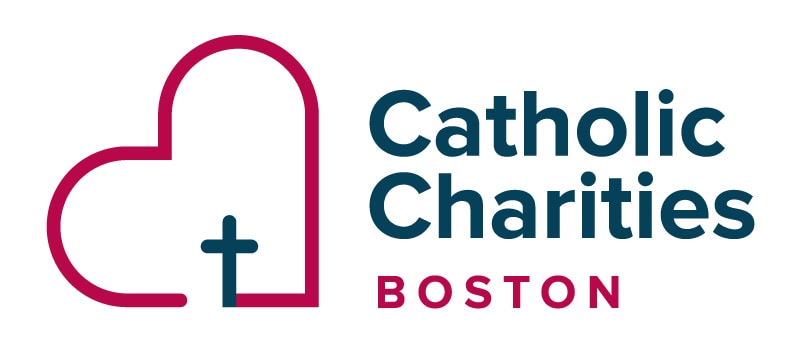#StopFoodWasteDay: Six Ways To Get the Most Out of Your Food Budget

With many still struggling with Food Insecurity in Massachusetts, recognizing Stop Food Waste Day is more crucial than ever
Nearly one in three Massachusetts adults were experiencing food insecurity in 2021, according to a recent study from the Greater Boston Food Bank.
Record-high rates of inflation causing the cost of living to skyrocket, systemic discrimination leading to structural inequities throughout society, and most recently, the withdrawal of extended SNAP benefits, which served as a life raft for people struggling with food insecurity throughout the pandemic, all have been considered contributing factors.
Beth Chambers, Vice President of Basic Needs for Catholic Charities, said food pantry staff and volunteers have been extremely busy this month, with volunteers packing roughly 800 bags each Saturday at the Yawkey Food pantry in Dorchester, all of which are gone by the end of each week. Catholic Charities Boston partners with Lovin’ Spoonfuls, a food rescue organization that is dedicated to facilitating the rescue and distribution of healthy, fresh food that would otherwise be discarded; in 2021, Lovin’ Spoonfuls donated 220,842 pounds of fresh perishable food to Catholic Charities Boston’s El Centro, Somerville, and Yawkey Center food pantries. Even still, hunger remains on the rise.
With April 26 being Stop Food Waste Day, it is a crucial time to spread awareness on the significant need families are experiencing across the state.
Christine Keller, Director of Catholic Charities Boston’s Food Pantries, said that one of the ways the Lynn Food Pantry is striving to cut down on food waste is by donating unusable items to local farms where it can be used for cattle feed or composting. Keller also shared the following practical tips on how those experiencing food insecurity can plan ahead in order to get the most out of their weekly food supply.
Six Ways You Can Get the Most Out of Your Food Budget When Experiencing Food Insecurity
1. Report Household Changes to the Department of Transitional Assistance
Every SNAP household has a certification type based on the age and income types of its members. Your certification type determines how long you will receive SNAP benefits for. If you experience a change to your income, your medical experiences, or a household misfortune, report it to DTA so that SNAP can accommodate your family’s needs.
2. Take Advantage of the Healthy Incentives Program (HIP)
Christine encourages clients to take advantage of HIP, a program which allows SNAP recipients to buy healthy, local fruits and vegetables from farm vendors using HIP funds, which are immediately refunded as SNAP dollars when spent on HIP produce.
3. Seek Out Resources for Women and Children
The Women, Infants, and Children Nutrition program keeps pregnant and breastfeeding women, and kids under 5, healthy by providing healthy foods, nutrition education, breastfeeding support, and referrals to healthcare and other services, free of charge, to Massachusetts families who qualify.
4. Be Strategic About When to Use SNAP Dollars
Christine advises clients to first come to the pantry to see what is in stock, and then purchase what they can using HIP incentive funds, before lastly relying on SNAP benefits, since HIP funds do not roll over the way that SNAP benefits do.
5. Shop with Intention
Compare your most expensive routine purchases at different stores to find the best regular price, and be on the lookout for sales. Shopping for fresh foods that can be prepared at home and avoiding processed and pre-packaged items whenever possible will usually give you the most nutrition value for your money. Focus on in season produce for the best price, consider planting some favorite fruits or vegetables in recycled containers or pursuing raised garden beds.
6. Sign up for a Discounted Instacart Membership
Catholic Charities’ food pantry clients, who receive SNAP benefits, also now have the option to sign up for a discounted Instacart+ membership, which includes free delivery and pickup on orders over $35, 5% credit back on all Pickup orders, and reduced service fees on every order. Those interested in donating high-demand items to Catholic Charities’ food pantries can also now do so through Instacart’s “Community Carts.”
“We were always thought of as an emergency food pantry, and the word emergency is gone now,” said Beth Chambers, Vice President of Basic Needs, in the recent Boston Globe article, ‘As food aid program winds down, another piece of the COVID-era safety net gets snipped away.’
To learn more about Catholic Charites Boston’s food pantries, or to explore other resources for those in need of emergency food assistance, click here. To learn more about how you can get involved and help Catholic Charities clients experiencing food insecurity, click here.
